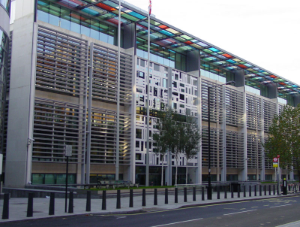Watchdog says Home Office has more complaints upheld than any other government department
A report by the Parliamentary and Health Service Ombudsman has found delays and poor decision making in the Home Office's handling of immigration cases.
The report was covered by a number of media sources, including BBC News, ITV News, the Telegraph and The Times.
 Image credit: UK GovernmentAs The Times noted, the Ombudsman's report found that the Home Office had more complaints upheld against it than any other government department, partly due to the high volume of old legacy immigration cases.
Image credit: UK GovernmentAs The Times noted, the Ombudsman's report found that the Home Office had more complaints upheld against it than any other government department, partly due to the high volume of old legacy immigration cases.
BBC News quoted the Parliamentary and Health Service Ombudsman Julie Mellor as saying: "We have seen far too many cases where people have been separated from their loved ones, unable to work and where their children have been denied access to education. It is the responsibility of every board of every UK government department and agency to recognise the profound impact poor services can have on people's lives and make sure they learn from complaints to improve services for all."
You can read the Ombudsman's report here and we've excerpted the section on the Home Office below:
"We investigated 158 complaints about the Home Office in 2014-15, of which 109 were fully or partly upheld - a high uphold rate of 69%. We did not uphold 29% of our investigations: in 23% of complaints we investigated we found no maladministration or service failure, while in a further 6% of complaints we investigated we found that there had been failings, but that these had already been accepted by the Home Office and been put right. In 3% of complaints we investigated we were able to resolve the complaint without having to complete the investigation, or we discontinued our investigation, for example, because the complainant asked us to do so.
It is noticeable that there has been no major change in the high uphold rate for the Home Office, despite an almost eight fold increase in investigations since 2012-13 due to the lowering of our threshold for investigating unresolved complaints.
Elsewhere in our casework, the large increase in investigations has led to a significant drop in the uphold rate from 84% in 2012-13 to 37% in 2014-15.
The persistently high uphold rate for the Home Office can partly be explained by the high volume of old legacy immigration cases the Home Office have been dealing with. These are old cases that the newly established immigration directorates of the Home Office inherited from the UK Border Agency when the Agency was abolished in April 2013. These cases were the single biggest issue in our casework about the Home Office last year, making up 21% of all our Home Office investigations, and we upheld all of them.
The high uphold rate for complaints about the Home Office was similar across all of its immigration directorates. In fact, the Border Force uphold rate increased from 25% to 63% between 2013-14 and 2014-15, although the 25% rate in 2013-14 was based on a small number of investigations. Our casework suggests that there have been weaknesses in the way the Home Office handled immigration related complaints and engaged with the consequences of administrative errors over the last couple of years, leading to a 'spike' in cases coming to us, and to an increased chance of us upholding these cases.
The most common reason for upholding complaints about the Home Office in 2014-15 was delay: almost half (48%) of all of the complaints we upheld included delays as a factor. This marks a significant increase from 31% in 2013-14 and again, may be the result of the high volumes of old legacy immigration cases that the Home Office dealt with last year and that were escalated to us.
The second most cited factor in complaints we upheld were concerns about the way the Home Office made decisions where it had room for discretion. This featured in 17% of upheld complaints in 2014-15. In one in ten investigations we upheld, there were concerns about Home Office mistakes in decision-making which was not discretionary.
In relation to the way the Home Office handles complaints, the main reason why people complained was that they didn't feel that the Home Office had done enough to put things right or apologise properly. This was the main factor in 39% of the investigations we upheld. Other important reasons for complaints were that the Home Office gave the complainant a wrong or incomplete response (13%), or made an unsound decision on a complaint, or applied the wrong guidelines (7%). Other reasons people complained were delayed responses to complainants (5%), and not involving complainants enough in the complaints process (4%).
Our casework shows clearly that the Home Office failed to address delays and poor decision making in the immigration system last year and did not deal adequately with the impact these failings may have had on individuals and their families. The delays and poor decision making meant that people had to endure prolonged uncertainty, were not able to be with their loved ones, were denied access to education or unable to work, or had to pay unnecessary legal fees and/or application fees. The impact on them was exacerbated by poor complaint handling, which meant that opportunities were lost to put things right and to learn from mistakes. We would expect the Board of the Home Office to use this information as part of their scrutiny of the quality of the department's performance to ensure that they harness learning from complaints."